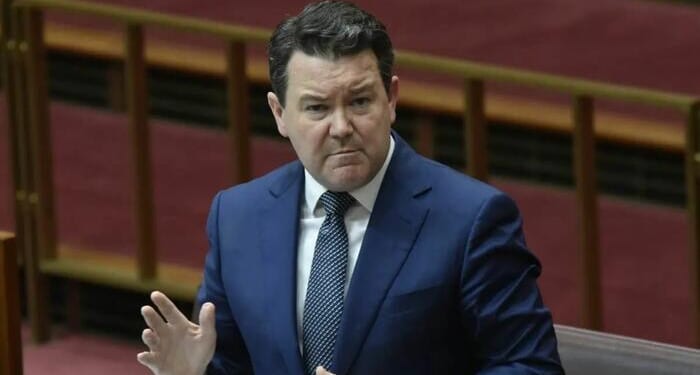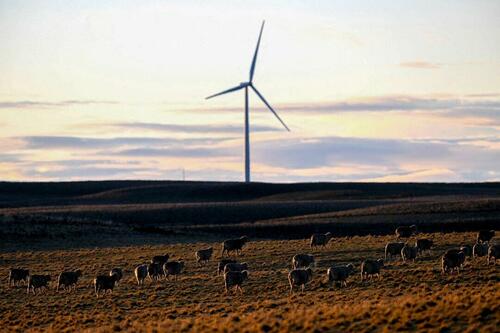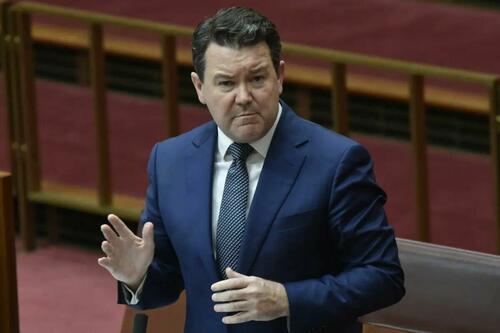Authored by Alfred Bui via The Epoch Times (emphasis ours),
The Australian Climate Service (ACS) says it did not scrutinise data in a Climate Council report that underpinned last month’s National Climate Risk Assessment.
The Assessment, released in mid-September, was the first of its kind and warned of a dangerous future for Australia if climate change was not dealt with.
Questions on the Assessment were put forward by Liberal Party Senator Dean Smith during a Senate Estimates hearing featuring the heads of the ACS.
The Assessment contained alarming figures, including the conclusion that 1.5 million Australians would be impacted by rising seas by 2050, and that property values could plunge $611 billion (US$398 billion) by 2050, and $770 billion by 2090.
While the report was welcomed by climate advocacy groups and other organisations, it also attracted criticisms, with some alleging that it exaggerated risks and amounted to a scare campaign.
Reviewed But Not Scrutinised
As the hearing progressed, Smith noted that the Assessment relied on a 2019 report by the Climate Council, a non-profit organisation that advocates for stronger climate action.
He then questioned asked ACS representatives whether any government agencies had assessed the accuracy of the Climate Council’s work.
In response, Judith Landsberg, ACS general manager, said her agency did not scrutinise the report.
“We had a policy and economy reference group that reviewed all of the evidence that went into the economic assessment,” she said.
“It’s normal scientific practice to collect evidence from a range of previous studies. So they were not involved in assessing the work … for the Climate Council report.
“Part of their role was to review the report and ensure it was reflected accurately.
Smith then pointed out that not examining the Climate Council’s accuracy was a key matter of interest, as the document was referred to several times in the Assessment.
Landsberg said that was “normal scientific practice.”
“It’s a normal scientific practice to cite previous reports without … going back and checking the accuracy of those reports,” she said.
The response prompted the Liberal senator to probe further.
“That doesn’t sound scientific. Excuse me, I’m not a scientist, but that doesn’t sound scientific to me,” Smith said.
Landsberg said her agency had reviewed the Climate Council report and approved its inclusion in the Assessment, but that process did not necessarily involve scrutinising data.
“What is assessed as the preponderance of evidence, and the way that the evidence was synthesised was reviewed by our economy and policy reference group, which included officials from Treasury, from APRA [Australian Prudential Regulation Authority], from the climate change authority and a number of academics,” she said.
Question Over Why Impending 2030 Climate Harm Estimate Not Included
At the same time, Smith asked the ACS why the Assessment did not include the Climate Council’s 2030 estimate that property value losses could reach $571 billion—over $110 billion a year for the next five years from 2025.
Landsberg said that for the sake of “consistency” the Assessment often used 2050 and 2090 scenarios, rather than try to model a 2030 scenario.
“It’s consistent with the other facts and impacts that were cited in the overview report, so [this is] consistency across systems and across different points of evidence,” she said.
Landsberg’s remarks were disputed by Smith, who noted that the omitted information was only a few words long and would not affect the so-called “consistency.”
The Liberal senator then questioned the reliability of the 2030 scenario, saying the figures did not convince him.
“A 2019 report … suggests that Australian property values are going to fall by $571 billion in the next five years.
“To put that in context, that’s $114 billion a year. And assuming about 9.8 million households across Australia, this report is suggesting that Australian household values are going to fall in the order of $11,600 each year for the next five years,” Smith said. “That’s just not scientific. That’s just not believable.”
Landsberg noted that the figures in the report were not predictions of what would happen in the future.
“It is not a prediction. None of this is a prediction. It is an assessment of potential impacts which potentially could be avoided by adaptation and intervention,” she said.
Loading recommendations…



















